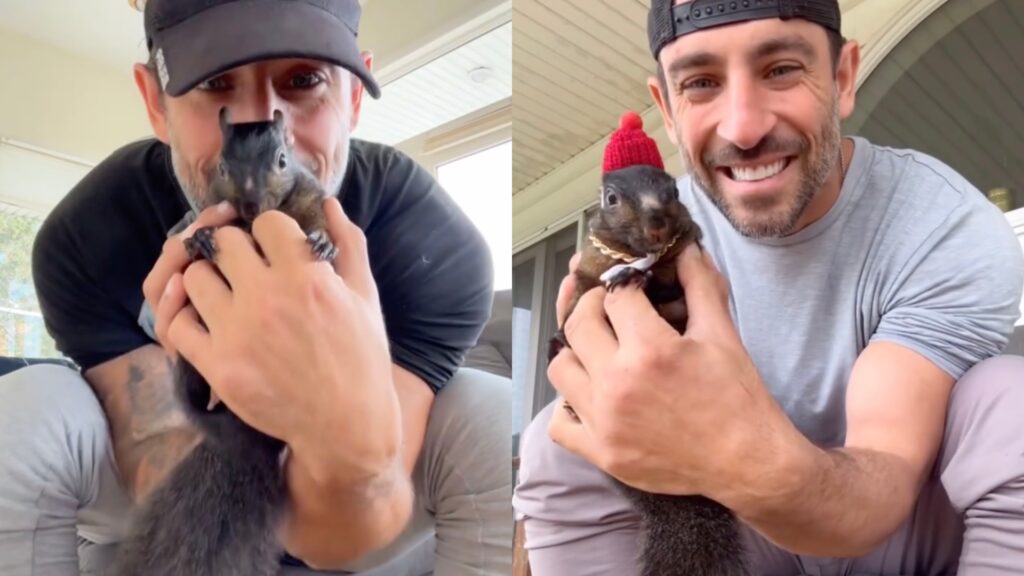In an emotionally charged incident that has mobilized the online community, Peanut the squirrel, a beloved star with millions of social media followers, was seized and euthanized by the New York Department of Environmental Conservation (DEC). Peanut rose to prominence online following a tragic backstory in which he was rescued as a baby after his mother was killed in a car accident. Under the care of Mark Longo, Peanut thrived and charmed audiences with his playful personality across platforms like Instagram, TikTok, and Facebook. However, despite his popularity and the affection he received from fans, Peanut faced the harsh realities of wildlife regulations, which ultimately led to his untimely death.
Peanut’s journey began seven years ago when he arrived at the Longo household as an orphaned baby squirrel. Mark Longo, passionate about animal rescue, adopted Peanut, and together they built a bond that resonated with thousands. Peanut’s inspiring story transformed into a symbol of resilience, as he overcame physical adversities—such as losing half of his tail through an attack—while remaining an indoor, non-releasable squirrel due to his lack of essential survival instincts. His online presence grew rapidly, garnering more than 2 million followers on TikTok and a collective following of over 3 million across different platforms, making him a household name and a source of joy for many.
The tragic events unfolded when DEC officials executed a sudden raid on the Longo’s home, where they seized Peanut and a raccoon named Fred. This action stemmed from complaints regarding the illegal possession of wild animals. According to DEC statements, the seizure was necessitated by concerns about rabies exposure, especially after a person involved in the investigation was allegedly bitten by Peanut. Subsequently, both pets were euthanized under the pretext of rabies testing, leaving Mark Longo devastated and questioning the methods and motivations behind the DEC’s actions.
In the aftermath of the seizure, Longo recounted the distressing details of the raid, describing how he and his wife were treated with suspicion—interrogated and subjected to a lengthy search of their home, which felt like a criminal investigation instead of a welfare check on their pets. Their experience has drawn widespread outrage and sympathy from their followers and animal rights advocates. Longo shared his heartache on social media, expressing gratitude to supporters while highlighting the need for continued advocacy and reform in wildlife management practices, describing how Peanut’s life was cherished and emphasizing the emotional impact of their loss.
Longo’s call for justice has sparked petitions aimed at holding the DEC accountable for their actions. He criticized the agency for a blatant disregard of proper procedures, such as the failure to use body cameras during the raid and the humiliating treatment his family endured throughout the process. The public outcry has prompted discussions about the ethical implications of current wildlife management practices and the need for reform, urging individuals and groups to join in demanding more humane treatment for animals and greater transparency from governmental agencies.
This incident hasn’t only drawn attention to the specific case of Peanut, but also highlights broader issues around government overreach in wildlife management, the complexity of illegal animal possession laws, and the treatment of animal caretakers. Advocates argue that cases like these underscore the importance of creating laws that balance public safety with compassion and respect for animals. The ongoing discourse inspired by Peanut’s story aims to foster greater awareness and encourage systemic changes that ensure no other beloved pets face a similar fate, allowing for responsible guardianship of wild animals in private care while prioritizing their welfare.

